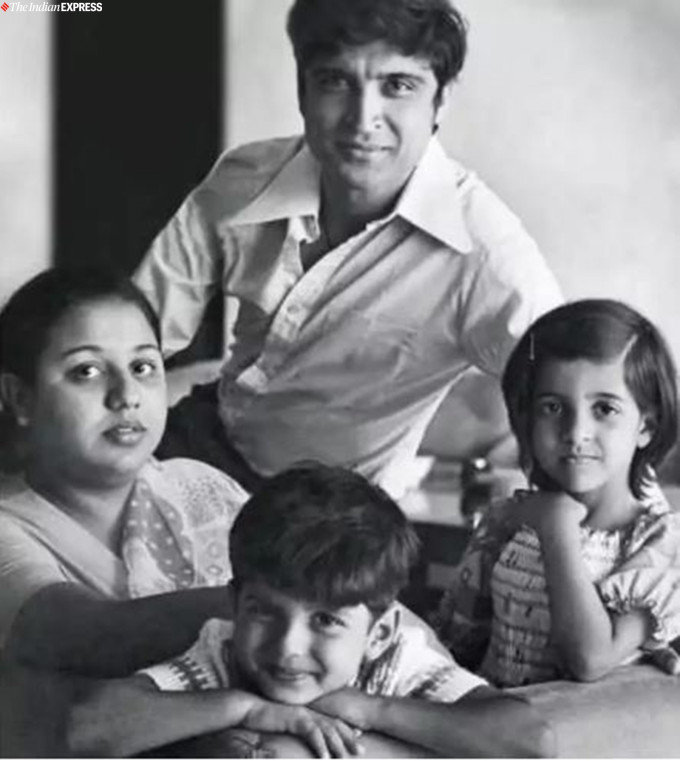Farhan Akhtar talks about the lasting impact of parents’ divorce on his decision to end marriage with Adhuna Bhabani
The impact of parental divorce echoes through time, a silent tremor that can reshape a child’s world. Just ask Farhan Akhtar, who recently shared how the divorce of his parents, Javed Akhtar and Honey Irani, left a lasting impression on him, influencing his views on relationships and his own marriage.
In a conversation with journalist Faye D’Souza in the latest episode of her podcast ‘A Candid Conversation with Faye D’Souza,’ the actor reflected on his father’s divorce and how it impacted his relationship with his ex-wife Adhuna Bhabani, with whom he parted ways after 15 years of marriage.

He said, “It was difficult. A certain aspect of it was of course that I had been through having divorced parents when I was a kid. I know what it felt like and there was a huge part of me that was like I cannot do this to my own kids. I felt that it came to a place that if Adhuna and myself spoke to them openly and honestly, and explain to them why we are taking this kind of step, that it doesn’t have anything to do with them. It’s not because of them, it’s not because of anything they did, they said, or because they are here.”
Akhtar’s experience is not uncommon, as many children of divorced parents often grapple with lingering fears, insecurities, and challenges in their relationships, along with guilt or worry when their relationships fail as well.
Does the cycle continue?
Malika Chandra, relationship psychotherapist at MC Psychotherapy, tells indianexpress.com, “A divorce can have a significant impact on the child. It is important to consider that this impact need not always be negative. A divorce simply amplifies the existent relationship patterns that the parents hold within themselves and towards each other.”
Positive impacts could include learning how to deal with the loss of a family unit or any such major changes, she says. “Negative outcomes could depend on the parent’s ways of handling the divorce. For example, the absence of one parent can cause an abandonment wound or the over sharing of another parent can cause parentification of the child.”
She adds that the children may grow up to reflect the same roles in adult relationships. They may also fall into patterns of trauma bonding where they are attracted to partners that help them create the same unhealthy childhood environment in vain efforts to somehow “change the ending” this time.
 Javed Akhtar and Honey Irani have two children – Zoya Akhtar and Farhan Akhtar. (Photo: Express Archive)
Javed Akhtar and Honey Irani have two children – Zoya Akhtar and Farhan Akhtar. (Photo: Express Archive)
How to break the cycle
Chandra asserts that one has to understand that the impact of their parents divorce “cannot be eradicated but rather has to be managed.”
For example, she says, if someone has an abandonment wound that makes them anxious when their partner asks for space, they cannot simply switch off this anxiety button. Rather, they can acknowledge this anxiety, sit with it, and then choose how they react to it.
She mentions, “Secondly, it may also be worthwhile to try to understand this anxiety deeper. Is it just a direct result of the abandonment wound or have they chosen a partner who asks for space in an unhealthy way, triggering their abandonment wound?”
Learn to feel your emotions and empathise with yourself. Understanding of those emotions and their origin will become clearer thereafter.
Try Cognitive Behavioural Therapy (CBT) exercises to understand the link between your thoughts, feelings and behaviours, Chandra states. “This will help you undercover underlying schemas that may have formed in childhood that have now become unhelpful to you but remain subconsciously active.”
Strategies for parents from broken homes to manage guilt after their own marriage ends
Chandra reflects, “This is a very valid and commonly felt concern. The guilt is a sign that there is a significant part with the parent that wants to try to do their best. Parents can manage this guilt and worry by understanding the impact of divorce on themselves as well. Importantly, their own relationship with their partner can give them an idea of where their attachment patterns lie.”
It isn’t possible to raise securely attached children if the parents have not at least tried to heal their own attachment issues as well, she notes. “For example, is there a possibility that you will burden your child with this guilt? Will you try to suppress the guilt? Or, will the guilt trigger other defensive behaviours?”
The risk of not managing your guilt and worry and being honest about it with yourself can have an even greater impact on your child. Therefore, guilt is not the issue at all, it is how you handle it.
📣 For more lifestyle news, click here to join our WhatsApp Channel and also follow us on Instagram
Disclaimer: The copyright of this article belongs to the original author. Reposting this article is solely for the purpose of information dissemination and does not constitute any investment advice. If there is any infringement, please contact us immediately. We will make corrections or deletions as necessary. Thank you.

